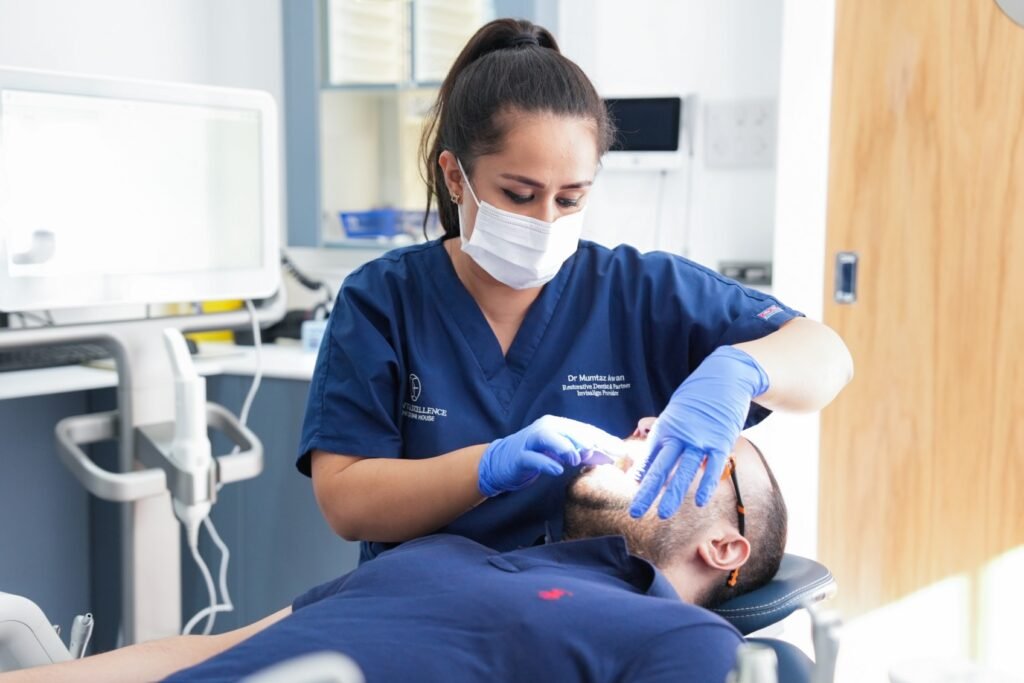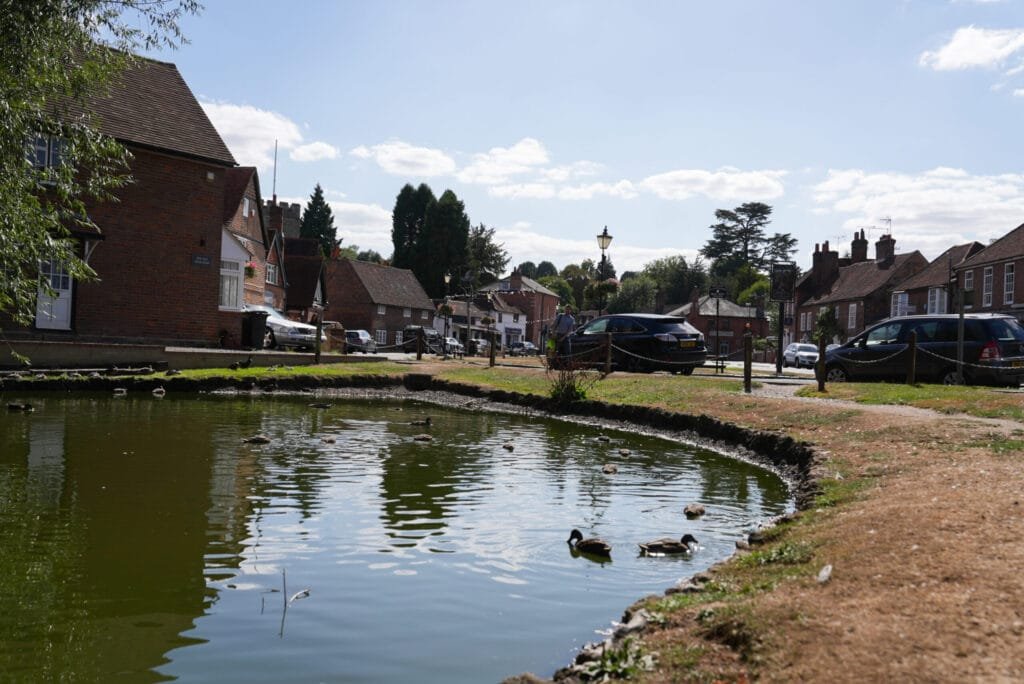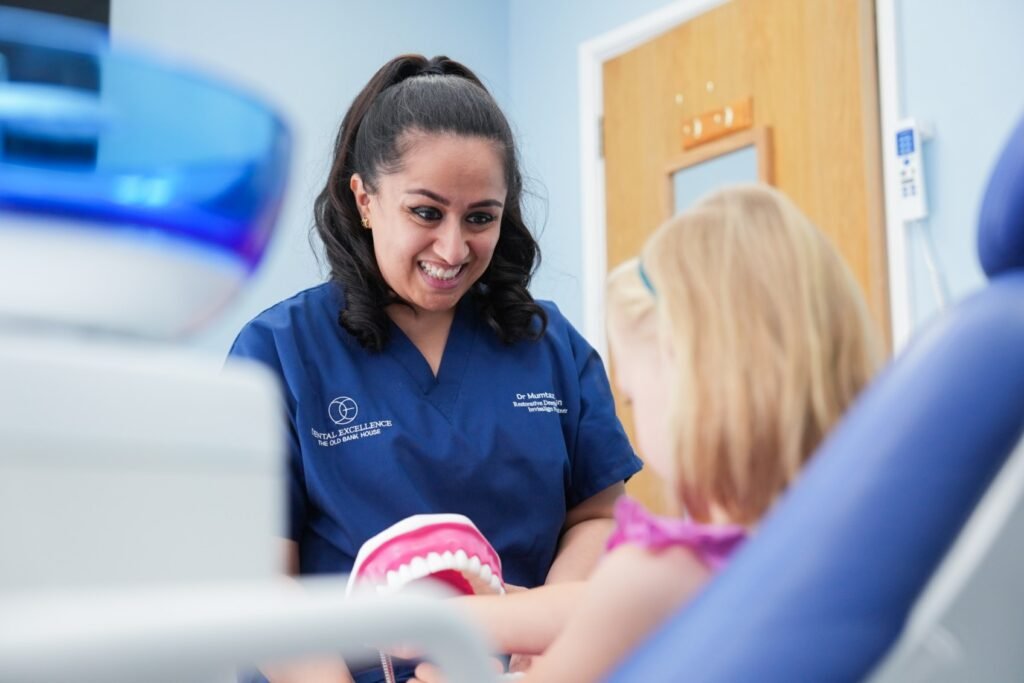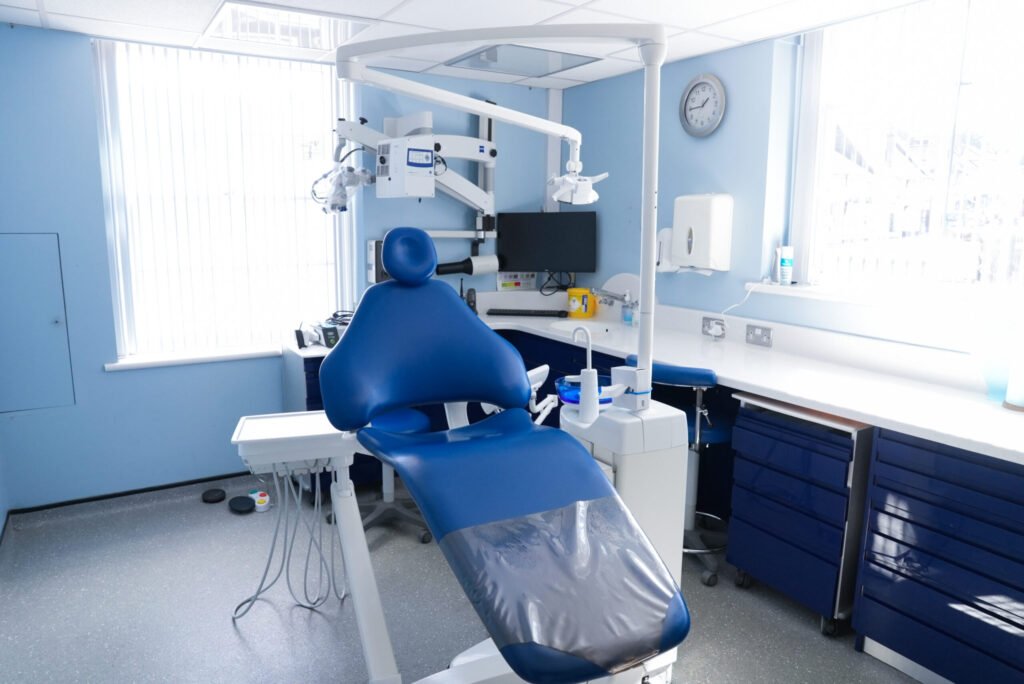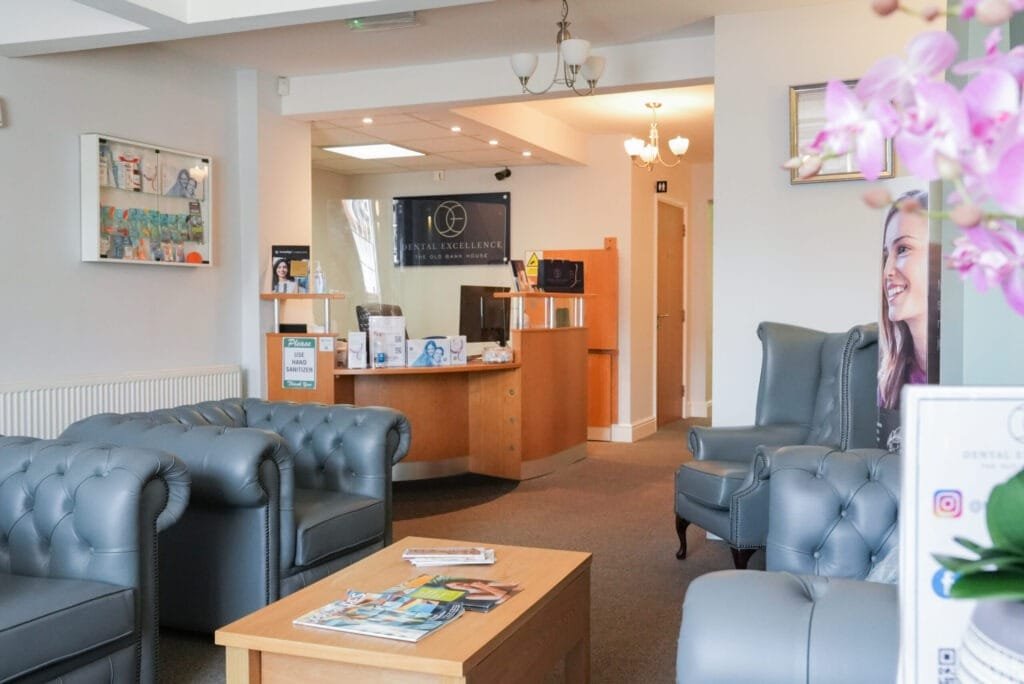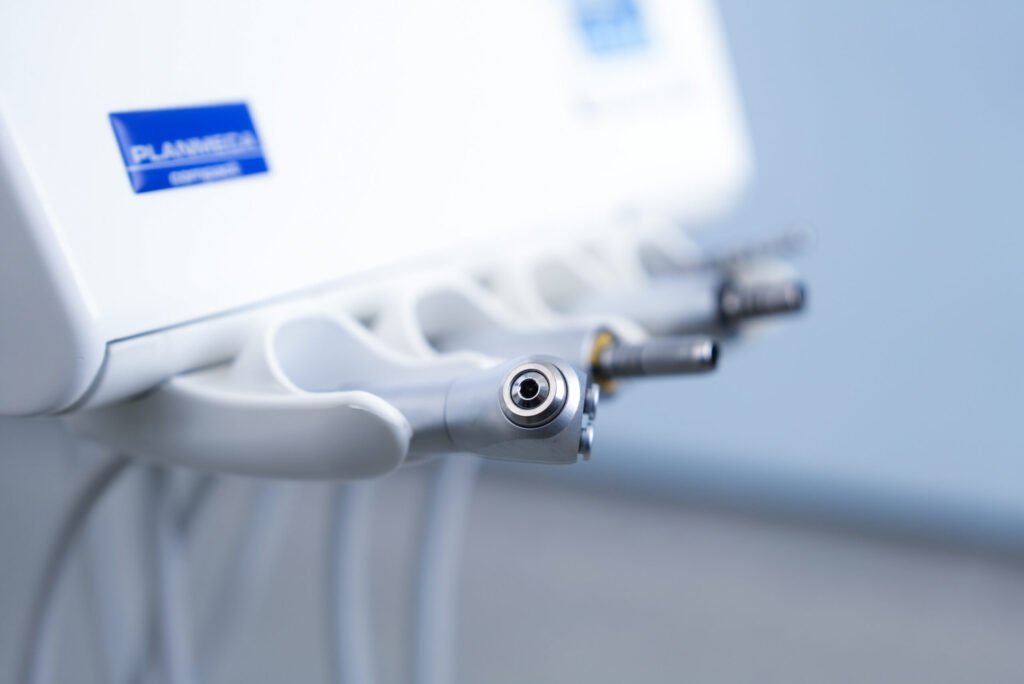Dental Implants in Chalfont St Giles
Restore Your Smile with Immediate Dental Implants in Chalfont St Giles
Yes, even if you have limited bone!
Trust our experienced team for a pain-free, cutting-edge implant solution that provides natural, long-lasting results in just one visit.
- Payment Plan Options
- A Team of Specialists
- Latest Digital Technologies
3 Unit Bridge on Implants
£6000
Worth £7450- You Save £1450
Your treatment includes:
- CBCT (£195)
- Consultation (£155)
Single Dental Implant
£2500
Worth £3450 - You Save £950
Your treatment includes:
- CBCT (£195)
- Consultation (£155)
- Complex Case Management
- Pain-Free Guided Surgery
- Advanced Technology
- Experienced Team

Dr. Morteza Mazinanian – Prosthodontics Specialist
With extensive experience in advanced implantology, Dr. Mazinanian offers personalised care for complex cases, ensuring exceptional results.

Pain-Free and Stress-Free Procedures
Our focus is on your comfort. With sedation options and guided surgery, we ensure a pain-free and relaxing experience, even for complex treatments. You can feel at ease throughout your entire procedure.

Experience and Expertise
At Dental Excellence, our team is highly skilled in advanced implantology, handling even the most complex cases. With years of experience, we ensure your implant procedure is performed with the utmost care and precision.

Long-Term Guarantee
We offer a 1-year guarantee on all implants, with the option to extend coverage. This gives you confidence in the long-term reliability of your dental implants in Chalfont St Giles.
Our Clinical Cases
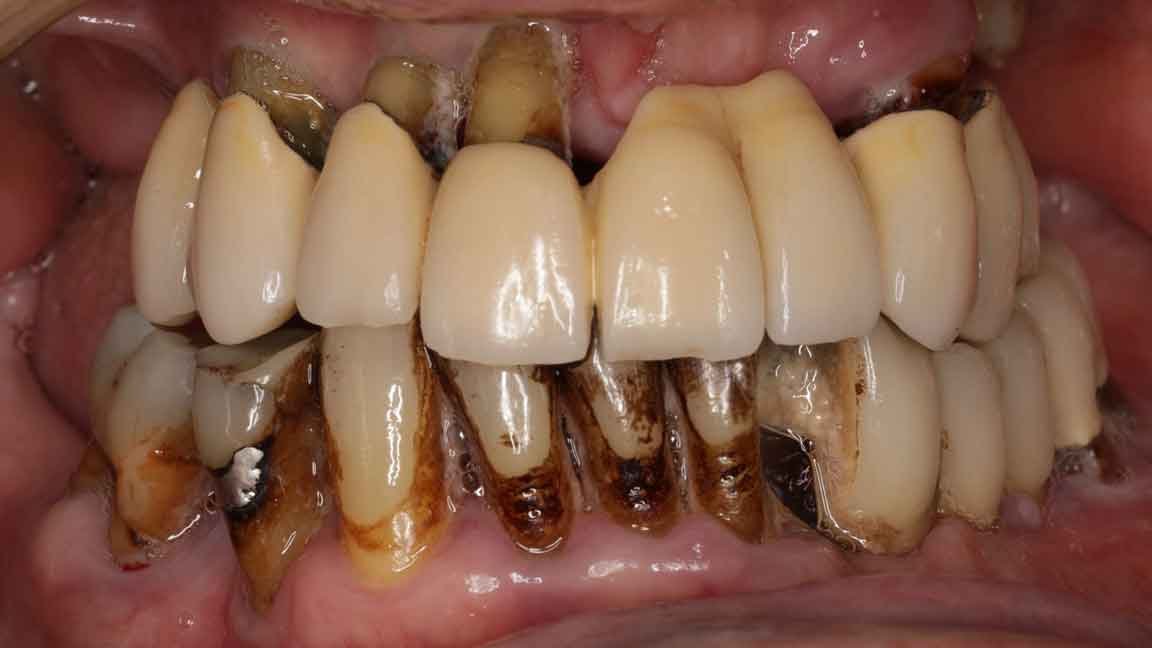
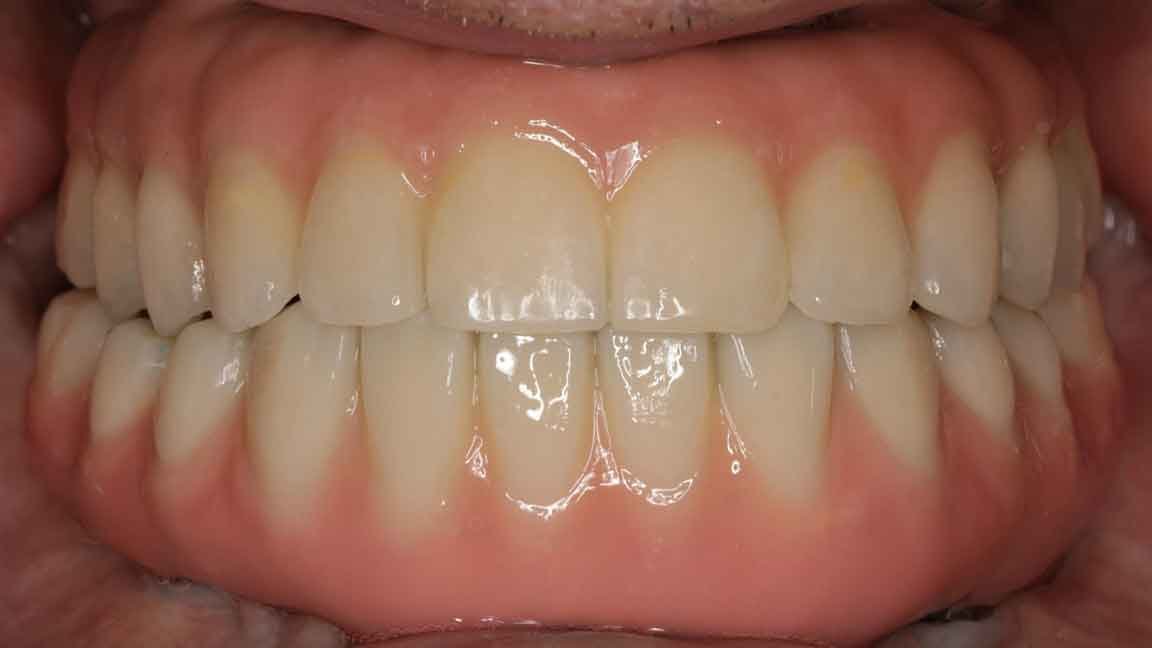
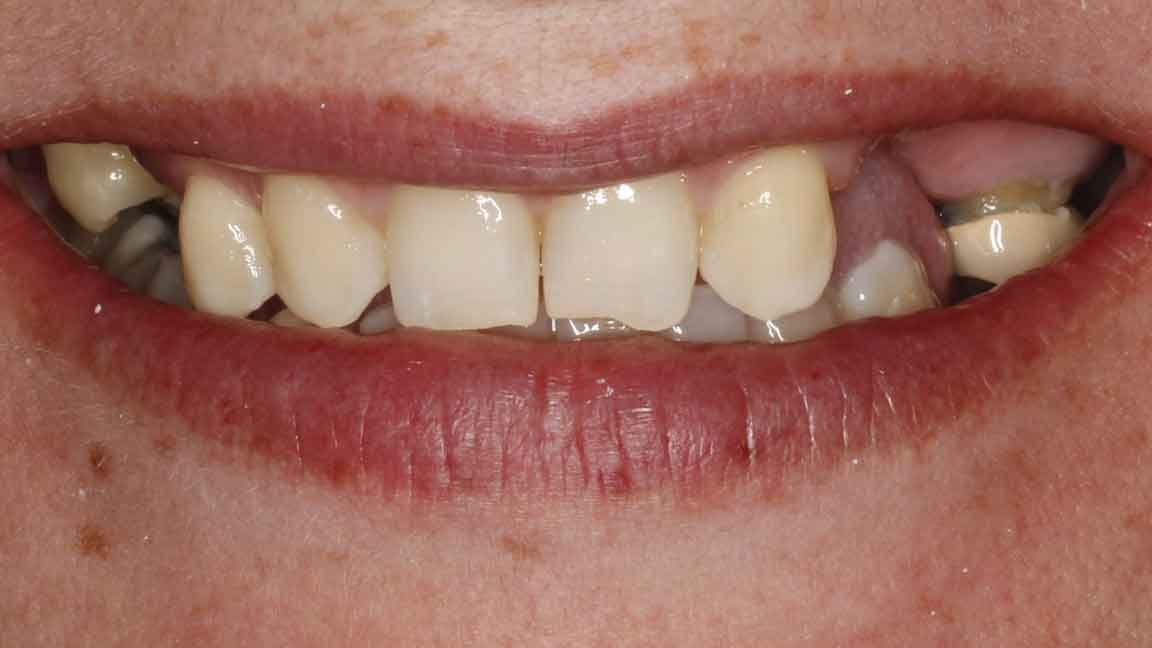
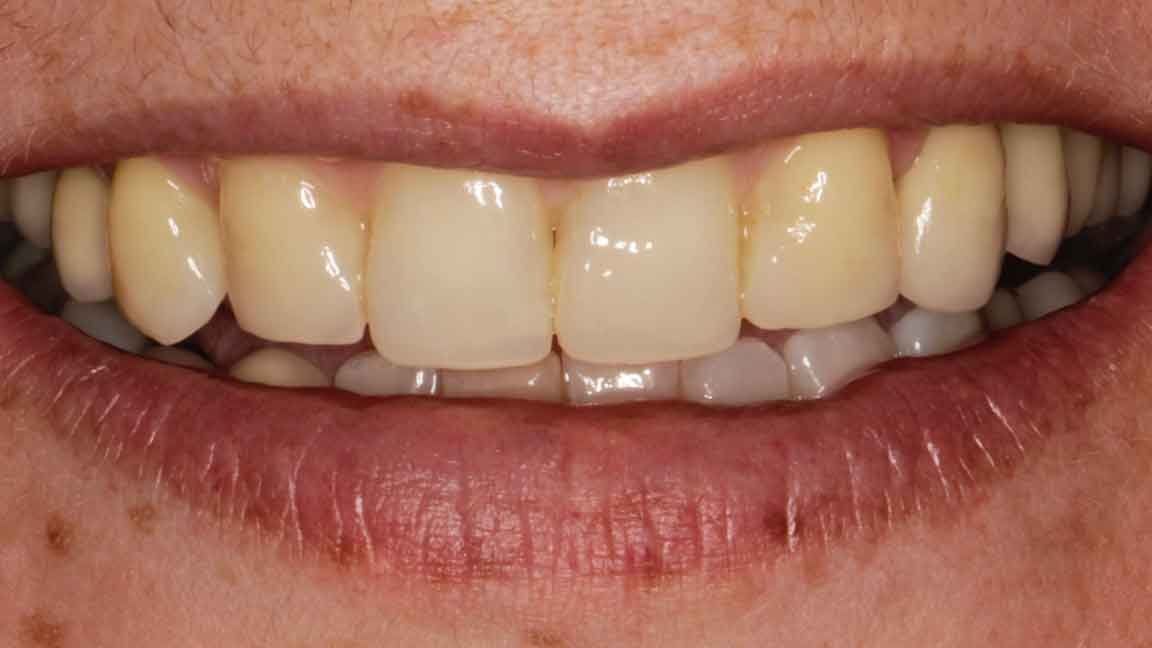
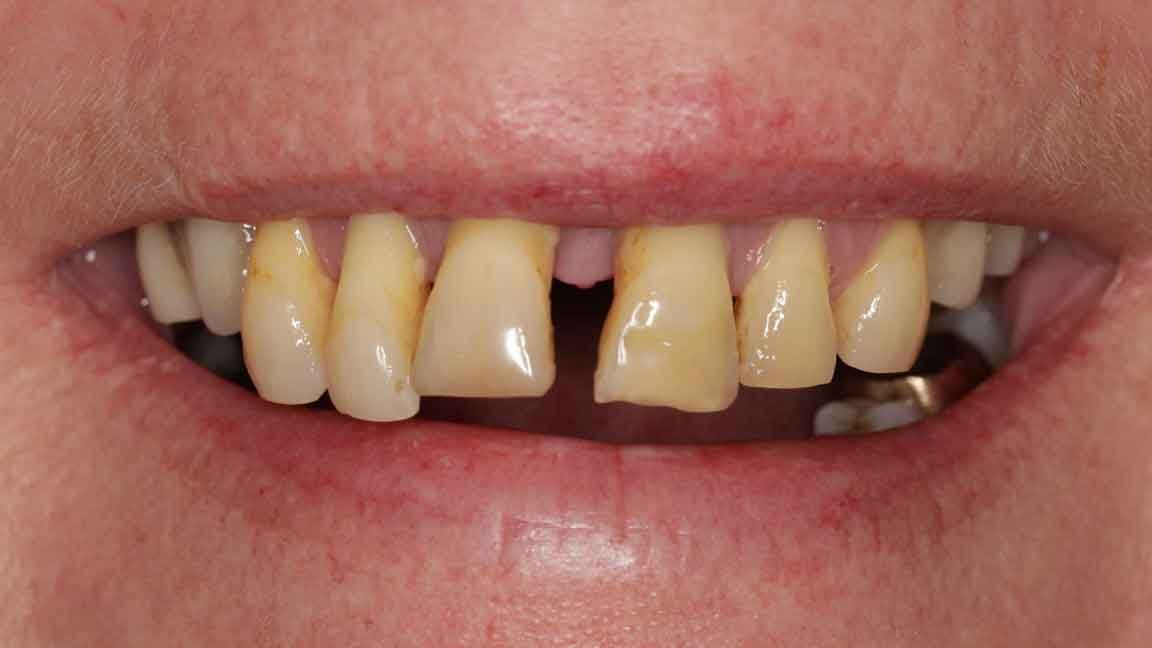
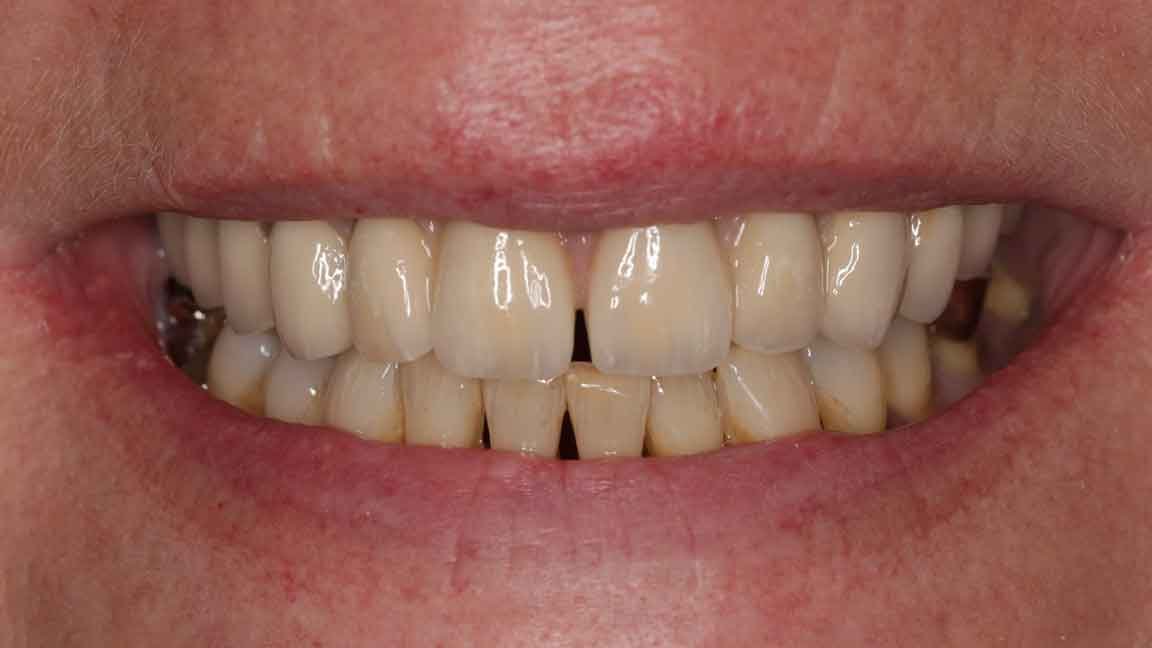
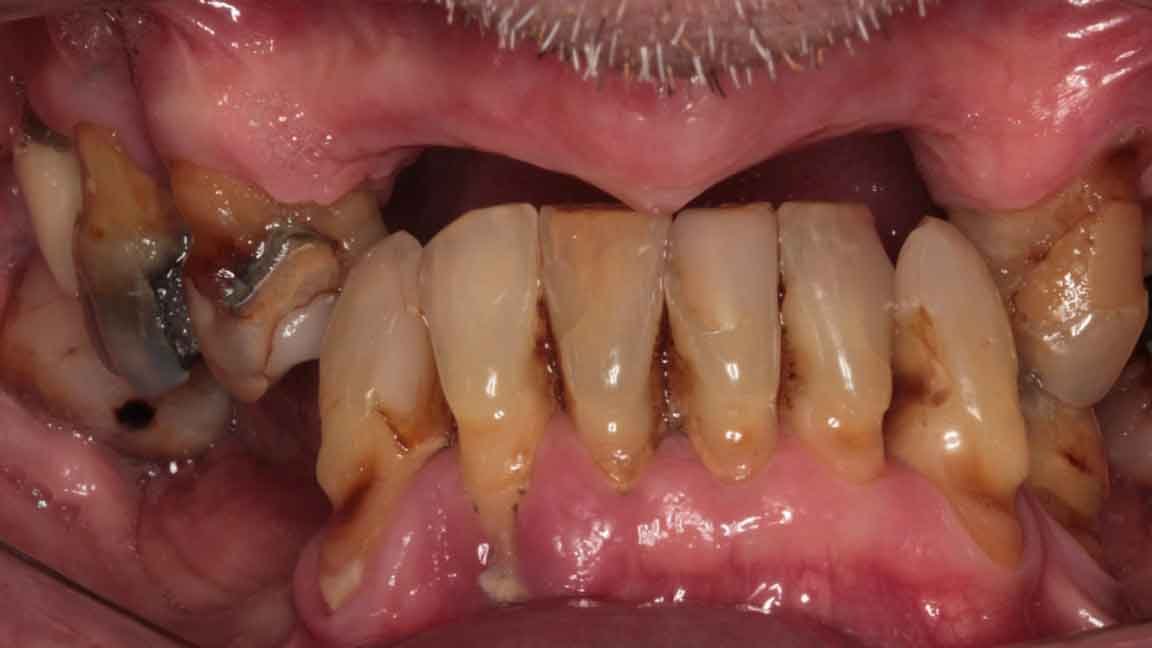
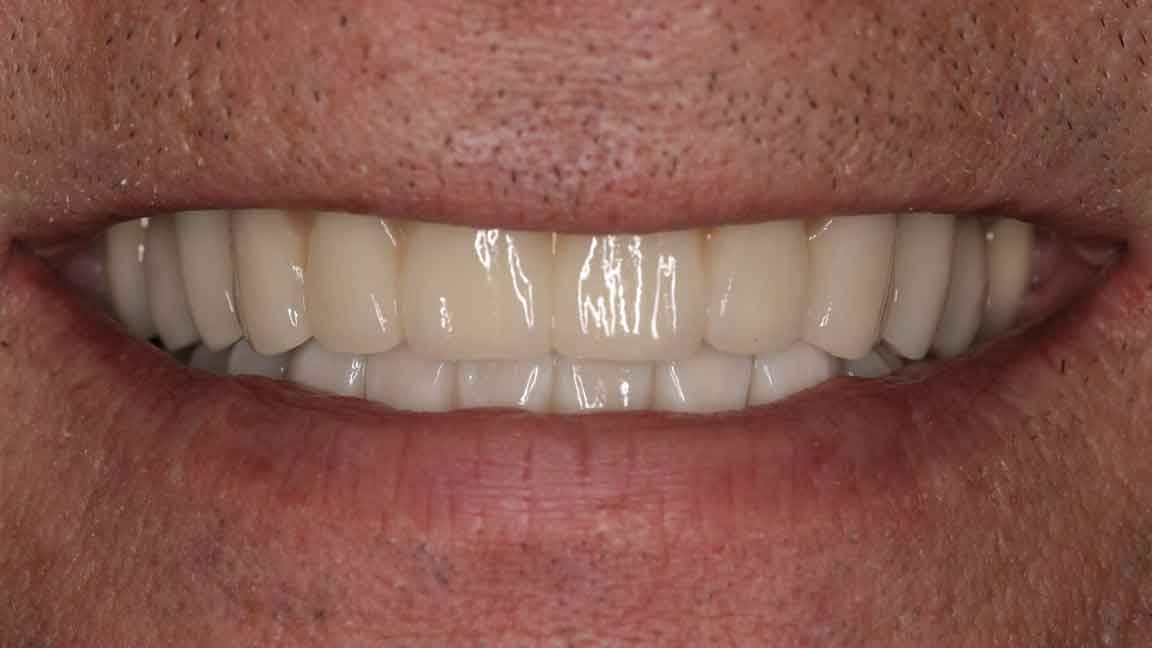
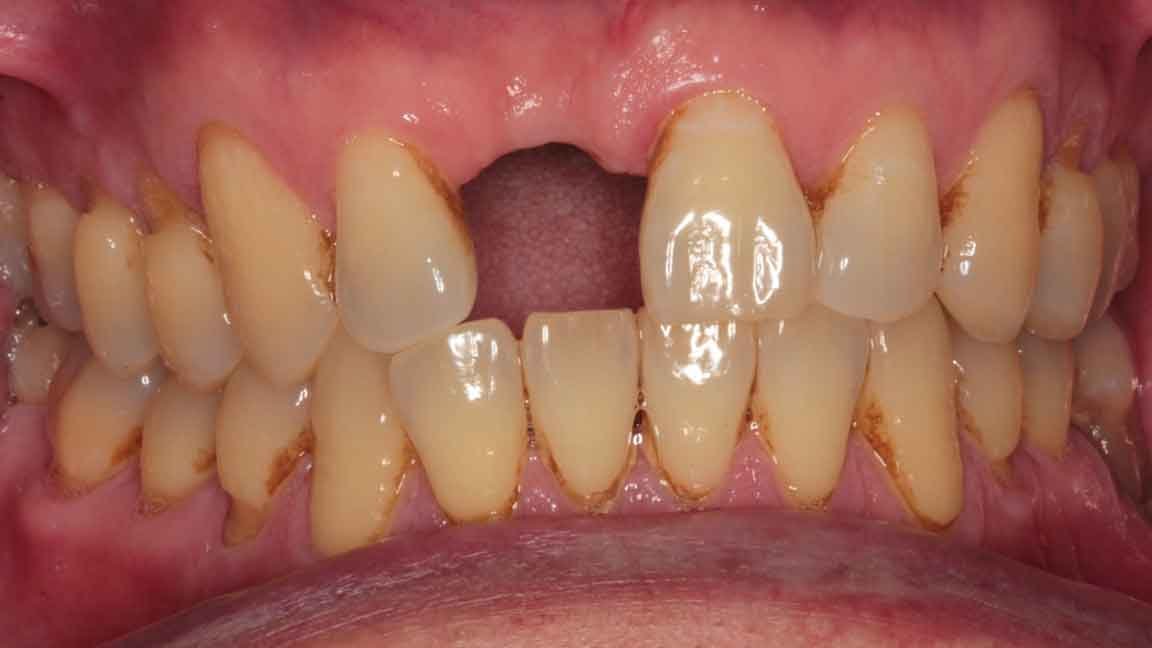
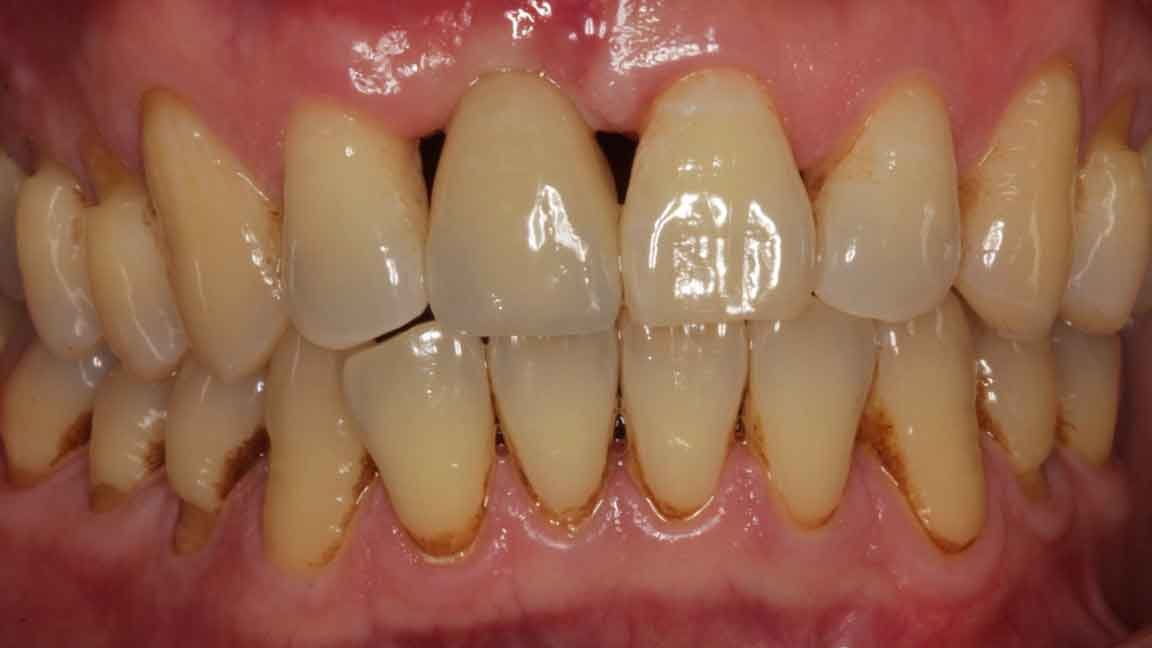
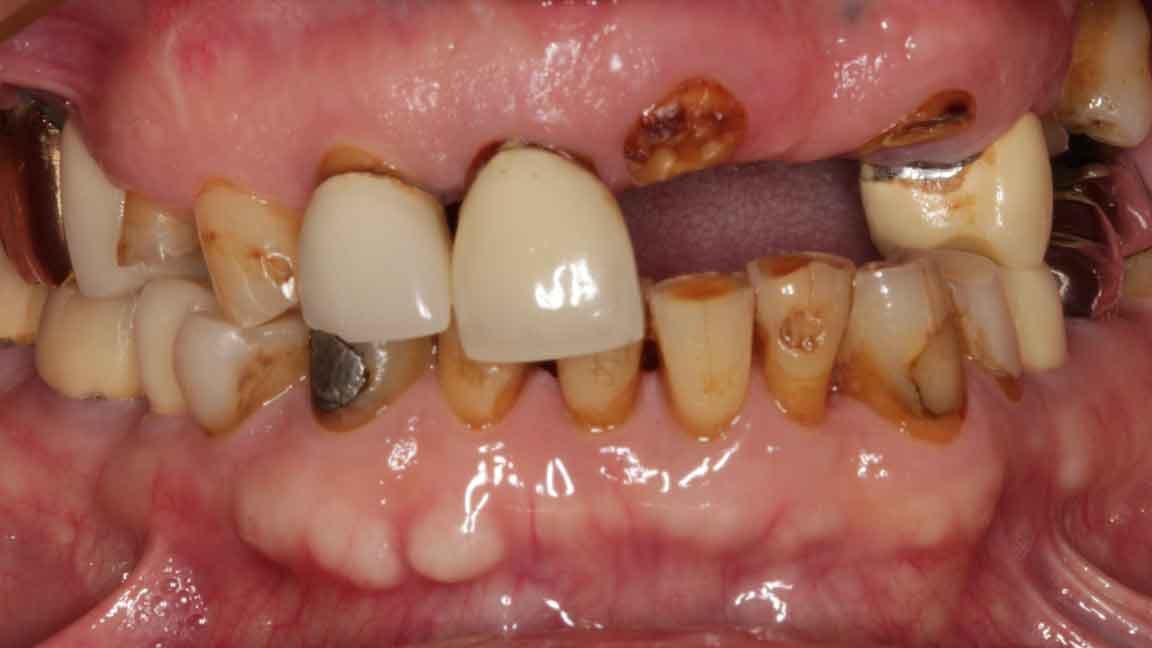
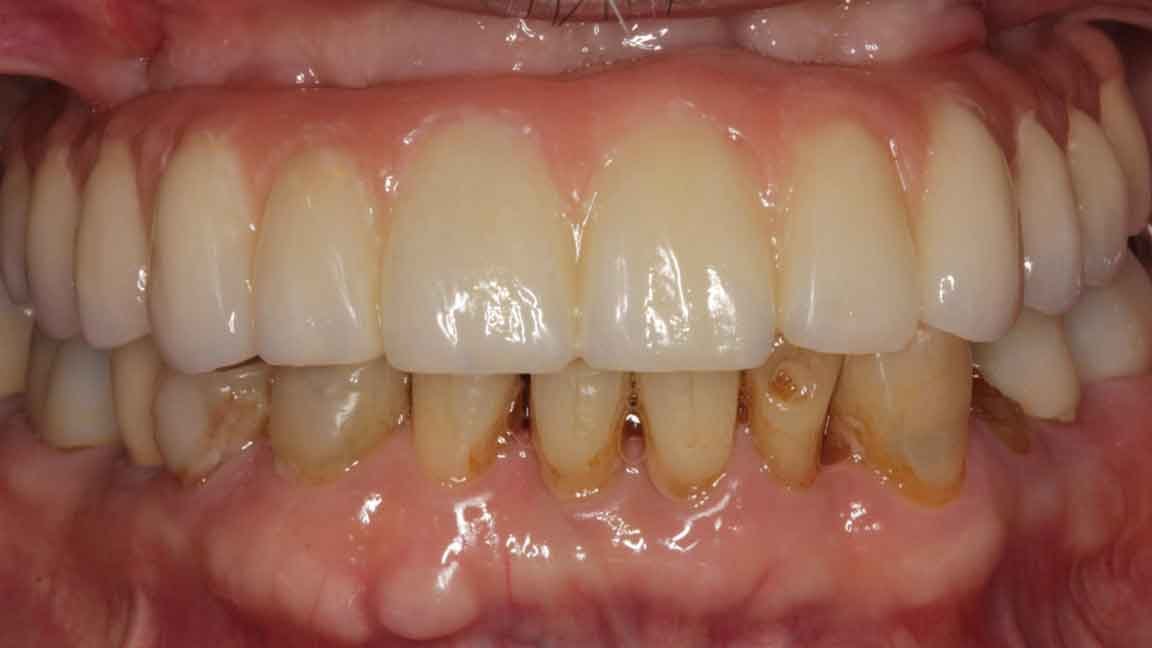
Dental Implants in Chalfont St Giles
Dental implants are a reliable and long-lasting solution for replacing missing teeth and restoring comfort, function, and confidence. At Dental Excellence, implantology is a core treatment area, delivered with a strong focus on safety, precision, and personalised care. Every patient begins with a detailed consultation to assess clinical needs and design a treatment plan tailored to their situation.
What sets our practice apart is the combination of a multidisciplinary team and advanced digital technology. We use in-house 3D CT scans, digital planning, and computer-guided surgery to place implants accurately and predictably, even in complex cases. This approach helps minimise discomfort, reduce healing time, and improve long-term outcomes.
Patient comfort is always central to our method. We offer conscious sedation, minimally invasive techniques, and clear communication at every stage of treatment. If you are considering a safe, modern, and tailored solution, book a consultation for dental implants in Chalfont St Giles.
Index
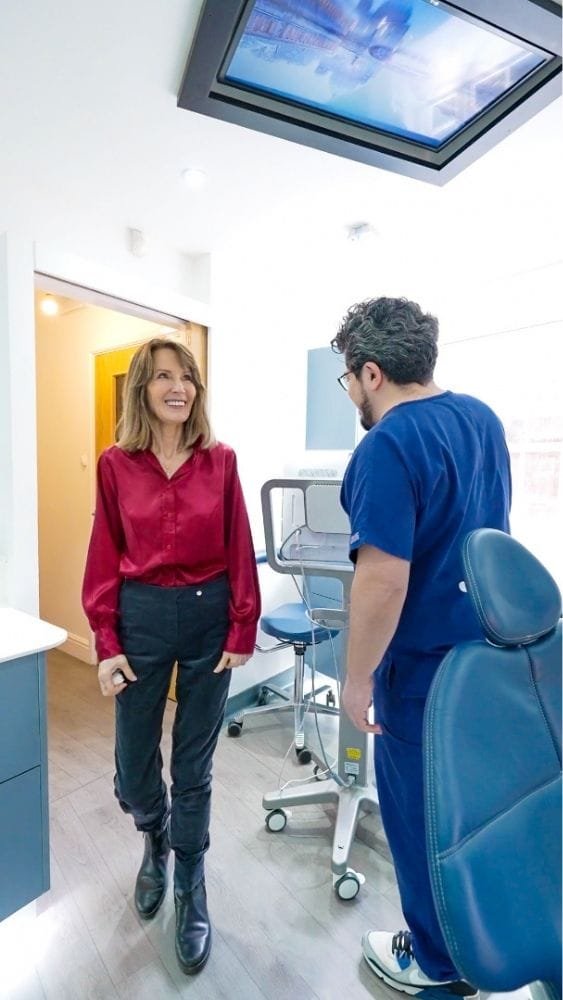
What Are Dental Implants?
Dental implants are advanced solutions for replacing missing teeth, offering a permanent and natural-looking alternative to traditional dentures. Unlike removable options, implants are surgically placed into the jawbone, where they act as artificial tooth roots.
The implant is then topped with a crown or bridge, creating a seamless and functional smile.
At Dental Excellence, we use the latest technology, including 3D imaging and computer-guided surgery, to ensure precise placement and optimal results for dental implants in Chalfont St Giles.
Dental Implants
in Chalfont St Giles
Listen to the Testimony of One of Our Implant Patients
Same Day Dental Implants in Chalfont St Giles
Same Day Dental Implants in Chalfont St Giles
Same day dental implants allow you to replace missing teeth and leave the practice with fixed teeth on the same day, when clinical conditions allow it. This solution is ideal for patients who want to avoid long waiting times and temporary removable dentures.
At Dental Excellence, this treatment is carefully planned using advanced 3D scans and digital analysis to ensure safety, stability, and predictable results. Not every case is suitable, which is why we always prioritise a thorough assessment and recommend this option only when it is truly safe for the patient.
Our expertise and advanced technology allow us to combine speed with reliability, helping you restore function and confidence without compromising long-term success.
Computer Guided Dental Implants in Chalfont St Giles
Computer Guided Dental Implants in Chalfont St Giles
Computer guided dental implants use advanced digital technology to plan the entire procedure before surgery takes place. With 3D scans and virtual planning, we can place implants with exceptional precision and minimal invasiveness.
At Dental Excellence, this approach means reduced discomfort, faster healing, and highly predictable outcomes. The surgery is performed following a digital guide that ensures accuracy and safety at every stage.
This method is particularly reassuring for patients who value precision, comfort, and clear treatment planning from the very first visit.
Zygomatic Implants in Chalfont St Giles
Zygomatic Implants in Chalfont St Giles
Zygomatic implants are an advanced solution for patients with severe bone loss in the upper jaw who have been told they are not suitable for traditional implants. These implants are anchored into the cheekbone, which provides strong and stable support.
At Dental Excellence, zygomatic implants are managed by experienced clinicians using advanced imaging and careful treatment planning. This technique often avoids the need for extensive bone grafting and can significantly reduce treatment time.
It is a highly specialised procedure, designed to safely restore function and confidence in complex cases.
Dental Bone Graft in Chalfont St Giles
Dental Bone Graft in Chalfont St Giles
A dental bone graft is used when there is not enough natural bone to support a dental implant. The procedure helps rebuild bone volume, creating a stable foundation for long-term implant success.
At Dental Excellence, bone grafting is planned using advanced diagnostics and high-quality biomaterials to encourage natural bone regeneration. The procedure is safe, well-established, and carefully monitored throughout healing.
Thanks to our experience and technology, bone grafting allows many patients to access implant treatments that would otherwise not be possible.

Dr. Morteza Mazinanian
Dr. Morteza Mazinanian is a highly respected Specialist in Prosthodontics, known for his expertise in implant and restorative dentistry. With degrees in Medical Science and Dentistry, and specialist training at the prestigious UCL Eastman Dental Institute, he combines academic excellence with advanced clinical skills. Awarded for his research and a member of the Royal College of Surgeons of Edinburgh, Dr. Mazinanian manages complex dental cases with precision and empathy. In addition to leading Dental Excellence, he is a Senior Teaching Fellow at UCL, mentoring postgraduate dentists and speaking at international conferences, always prioritising patient outcomes and innovation.
How Do Dental Implants Work?
Dental implants work by providing a permanent and stable foundation for replacement teeth. The process begins with a thorough consultation and a customised treatment plan.
A titanium post is placed into the jawbone, where it integrates with the bone over time, creating a secure foundation.
This process, called osseointegration, ensures that the implant becomes a natural part of your mouth. At Dental Excellence, our team of specialists uses cutting-edge technology to ensure the best possible results.
If you’re looking for dental implants in Chalfont St Giles, trust us to provide personalised and effective solutions.
How Much Are Dental Implants?
The cost of dental implants varies depending on factors such as the number of implants, the complexity of the procedure, and the materials used.
While dental implants may seem like a larger investment upfront, they provide long-term benefits, including durability and functionality.
At Dental Excellence, we offer competitive pricing and flexible financing options, including 6-12 month interest-free payment plans.
For a detailed cost estimate and to explore the best option for you, contact us today and find out more about dental implants in Chalfont St Giles.
Your Journey With Us
A BESPOKE STRATEGY TO PROVIDE YOU WITH THE BEST ADVICE AND OPTIONS AVAILABLE FOR YOU.
Dentists in Chalfont
MQV
Consultation
Treatment
Aftercare
Schedule your visit now and let’s plan the right treatment together.
Why Are Dental Implants So Expensive?
Dental implants can seem expensive due to the advanced technology and expertise required for the procedure. The process involves precise planning, imaging, and surgical placement, which require specialised equipment and skilled professionals.
Additionally, high-quality materials like titanium and advanced post-treatment care contribute to the overall cost.
At Dental Excellence, we offer comprehensive care throughout the entire process, ensuring that your investment in dental implants is worthwhile and delivers lasting results.
Schedule your consultation today to discuss dental implants in Chalfont St Giles.
Are Dental Implants Painful?
While the thought of surgery may cause anxiety, dental implants are generally not painful. Local anaesthesia is used to numb the area, ensuring you feel comfortable throughout the procedure.
Most patients report only mild discomfort after the surgery, which can be managed with over-the-counter pain relievers.
At Dental Excellence, we prioritise patient comfort and use sedation techniques to ensure a pain-free experience.
If you’re concerned about pain, don’t hesitate to contact us and learn more about dental implants in Chalfont St Giles.
How to Relieve Pain from Dental Implants?
After the dental implant procedure, it’s normal to experience some swelling and mild discomfort. To relieve pain, we recommend applying a cold compress to the affected area, taking prescribed painkillers as directed, and avoiding hard or chewy foods. Rest is essential for proper healing.
At Dental Excellence, we offer additional solutions like sedation and specialised aftercare to ensure your recovery is as smooth and pain-free as possible.
For guidance and personalised care, book your appointment today for dental implants in Chalfont St Giles.
How Long Do Dental Implants Last?
With proper care and maintenance, dental implants can last a lifetime. Unlike traditional dentures or bridges, implants fuse with the jawbone, making them a permanent solution for missing teeth.
The crown or restoration placed on the implant may need to be replaced after 10-15 years, depending on wear and tear.
At Dental Excellence, we use top-quality materials to ensure that your dental implants remain durable and functional for years to come.
If you want long-lasting results, consider dental implants in Chalfont St Giles with us.
Book your appointment with our specialists today – it only takes a minute.
How Long Does It Take to Get Dental Implants?
The timeline for dental implants can vary depending on the individual case.
Typically, the process takes several months, starting with the initial consultation and followed by implant placement, healing, and the final restoration. The bone must heal around the implant (osseointegration), which can take 3 to 6 months.
In certain cases, we can expedite the process using advanced techniques like immediate load implants. At Dental Excellence, we’ll provide you with a clear timeline and guide you every step of the way.
Ready for dental implants in Chalfont St Giles? Book your consultation now!
How to Reduce Swelling from Dental Implants?
Swelling is a normal part of the healing process after dental implant surgery. To reduce swelling, apply a cold compress to the treated area for the first 24-48 hours, and keep your head elevated while resting. Over-the-counter anti-inflammatory medications can also help manage discomfort. Following your dentist’s aftercare instructions is crucial for a speedy recovery.
At Dental Excellence, we provide detailed care instructions to minimise swelling and ensure optimal healing.
To start your journey with dental implants in Chalfont St Giles, book your appointment today.
What are the benefits of dental implants in Chalfont St Giles?
What are the benefits of dental implants in Chalfont St Giles?
Dental implants in Chalfont St Giles provide a permanent solution for replacing missing teeth, offering several advantages over traditional dentures or bridges. They look and feel like natural teeth, improving both appearance and function. The procedure preserves jawbone health, preventing the bone loss that can occur with missing teeth. Additionally, dental implants help restore confidence by allowing you to eat, speak, and smile without worry. At Dental Excellence, our experienced team uses cutting-edge technology, ensuring your implants are placed precisely for optimal results. If you’re seeking a durable and aesthetic solution for missing teeth, dental implants in Chalfont St Giles could be your ideal choice.
How long do dental implants in Chalfont St Giles last?
How long do dental implants in Chalfont St Giles last?
The dental implant procedure in Chalfont St Giles typically takes 1-2 hours, depending on the complexity of the case. During your initial consultation, we will evaluate your specific needs and provide a detailed treatment plan. The process involves placing the implant into the jawbone, followed by a healing period, during which the implant integrates with the bone. In some cases, additional procedures, such as bone grafting, may be necessary. While the procedure itself is relatively quick, the full treatment timeline can span several months, allowing for proper healing and restoration. For a streamlined and efficient experience, consider dental implants in Chalfont St Giles.
Is the dental implant procedure in Chalfont St Giles painful?
Is the dental implant procedure in Chalfont St Giles painful?
The dental implant procedure in Chalfont St Giles is generally not painful, as local anesthesia is used to ensure you are comfortable throughout the treatment. During the procedure, your dental professional will place the implant into the jawbone, but you should not feel any discomfort. After the surgery, some mild discomfort and swelling may occur, but this can be managed with over-the-counter pain medication. Our team at Dental Excellence is committed to making your experience as comfortable as possible, using advanced technology to minimize pain and enhance precision. Don’t let fear hold you back—book your consultation for dental implants in Chalfont St Giles.
How long does the dental implant procedure in Chalfont St Giles take?
How long does the dental implant procedure in Chalfont St Giles take?
The dental implant procedure in Chalfont St Giles typically takes 1-2 hours, depending on the complexity of the case. During your initial consultation, we will evaluate your specific needs and provide a detailed treatment plan. The process involves placing the implant into the jawbone, followed by a healing period, during which the implant integrates with the bone. In some cases, additional procedures, such as bone grafting, may be necessary. While the procedure itself is relatively quick, the full treatment timeline can span several months, allowing for proper healing and restoration. For a streamlined and efficient experience, consider dental implants in Chalfont St Giles.
What is the cost of dental implants?
What is the cost of dental implants?
The cost of dental implants can vary based on several factors, such as the number of implants required, the complexity of your case, and any additional treatments like bone grafting. At Dental Excellence, we offer transparent pricing and work with you to provide a personalized plan that fits your budget. We also offer financing options with flexible payment plans to help make your treatment more affordable. While the initial cost may be higher than traditional options like dentures, dental implants provide long-term value by preventing further dental issues and offering a more durable solution. For more details on costs, contact us about dental implants in Chalfont St Giles.
How do dental implants compare to dentures?
How do dental implants compare to dentures?
Unlike dentures, which may need to be replaced or adjusted over time, dental implants in Chalfont St Giles are a permanent solution. Implants are securely anchored into the jawbone, preventing the discomfort, slipping, and inconvenience associated with dentures. With dental implants, you can eat, speak, and smile with confidence, without worrying about them shifting or falling out. Additionally, implants preserve the jawbone and help maintain your facial structure. While dentures may be a more affordable initial option, dental implants offer long-term benefits that make them the superior choice for many patients.
What are the risks of getting dental implants?
What are the risks of getting dental implants?
While dental implants are generally safe, like any surgical procedure, there are some risks to consider. These include infection at the implant site, damage to surrounding teeth or blood vessels, and implant failure due to insufficient bone density. However, these risks are minimal when performed by experienced professionals like those at Dental Excellence. We carefully assess your bone structure and overall health before recommending implants, ensuring that the procedure is safe for you. By choosing dental implants in Chalfont St Giles, you are opting for a well-planned and precision-driven solution.
How do I know if I need dental implants?
How do I know if I need dental implants?
If you are missing one or more teeth and are looking for a permanent, natural-looking solution, dental implants could be the right choice. Signs that you may need dental implants include difficulty eating or speaking, shifting teeth, or a decline in your self-esteem due to missing teeth. During a consultation at Dental Excellence, our team will evaluate your oral health and discuss your options. We’ll help determine if you’re a good candidate for dental implants in Chalfont St Giles, ensuring a tailored approach to your treatment needs.
Are there financing options available for dental implants?
Are there financing options available for dental implants?
At Dental Excellence, we understand that dental implants can be a significant investment. That’s why we offer flexible financing options to make the procedure more accessible. We provide interest-free payment plans over 6 or 12 months, allowing you to manage your costs effectively. Our goal is to ensure that you can access high-quality dental care without financial strain. For more information about financing and payment options, get in touch with us to learn more about dental implants in Chalfont St Giles.
How long does the healing process for dental implants take?
How long does the healing process for dental implants take?
The healing process for dental implants typically takes 3-6 months. During this time, the implant fuses with the jawbone in a process called osseointegration. This is a crucial step in ensuring the stability and longevity of your implant. Although you may experience some swelling and discomfort during the initial recovery, most patients are able to resume normal activities within a few days. At Dental Excellence, we provide detailed aftercare instructions to help you manage healing and ensure the best possible outcome. Start your journey to a restored smile with dental implants in Chalfont St Giles.
Can dental implants be used for multiple missing teeth?
Can dental implants be used for multiple missing teeth?
Yes, dental implants can be used to replace multiple missing teeth. In cases where several teeth are missing, we may recommend multiple implants or use a technique like the All-on-4 method, which allows us to restore an entire arch of teeth with just four implants. This approach provides a stable and durable solution that is both functional and aesthetic. If you are missing multiple teeth, dental implants in Chalfont St Giles could be an ideal option to restore your smile and improve your oral health.
How do I care for dental implants?
How do I care for dental implants?
Caring for your dental implants is similar to caring for natural teeth. Brushing twice a day, flossing regularly, and using an antibacterial mouthwash will help keep your implants and surrounding gums healthy. It’s also important to schedule regular check-ups with your dentist to monitor the condition of your implants and ensure everything is in good health. At Dental Excellence, we provide tailored aftercare advice to ensure your implants last as long as possible. Take the first step toward long-lasting oral health by considering dental implants in Chalfont St Giles.
Is the recovery time for dental implants long?
Is the recovery time for dental implants long?
The initial recovery after dental implant surgery is relatively quick, with most patients returning to normal activities within a few days. However, the full healing process, which includes osseointegration, can take several months. During this time, it is important to follow all aftercare instructions and attend follow-up appointments to ensure proper healing. While the full recovery period can take time, the long-term benefits of dental implants in Chalfont St Giles make it a worthwhile investment for your oral health.
Are dental implants better than bridges or crowns?
Are dental implants better than bridges or crowns?
Lorem ipsum dolor sit amet, consectetur adipiscing elit. Ut elit tellus, luctus nec ullamcorper mattis, pulvinar dapibus leo.
Can dental implants improve my speech and chewing?
Can dental implants improve my speech and chewing?
Yes, dental implants can significantly improve both speech and chewing. When missing teeth are replaced with implants, patients can regain full function, allowing them to speak clearly and chew their food comfortably. Traditional dentures can sometimes cause speech difficulties or make eating certain foods challenging. Implants, on the other hand, provide a stable, secure solution that restores natural function. If you’ve struggled with speech or chewing due to missing teeth, dental implants in Chalfont St Giles could be the solution you need.
What type of anesthesia is used for dental implants?
What type of anesthesia is used for dental implants?
For dental implants, local anesthesia is typically used to numb the treatment area, ensuring that the procedure is painless. In some cases, sedation dentistry may be offered to help you relax and ensure maximum comfort during the procedure. If you feel anxious about the procedure, we will discuss sedation options with you to ensure you feel at ease. At Dental Excellence, your comfort is our priority, and we use the most advanced techniques to ensure your dental implant experience is as smooth as possible. Book a consultation for dental implants in Chalfont St Giles.
Can I get dental implants if I have gum disease?
Can I get dental implants if I have gum disease?
If you have gum disease, it is important to address this issue before proceeding with dental implants. Gum disease can cause the bone around the implant site to weaken, which can compromise the success of the implant. At Dental Excellence, we offer comprehensive gum disease treatment options, such as scaling and root planing, to help restore your gum health before moving forward with implants. If you have gum disease, we will work with you to create a treatment plan that ensures the best possible outcome for dental implants in Chalfont St Giles.
How do I choose the right dentist for dental implants in Chalfont St Giles?
How do I choose the right dentist for dental implants in Chalfont St Giles?
When choosing a dentist for dental implants, look for someone with experience, expertise, and advanced training in implantology. At Dental Excellence, our team of specialists, led by Dr. Morteza Mazinanian, has years of experience in performing successful dental implant procedures. We use the latest technology, such as 3D imaging and computer-guided surgery, to ensure precision and safety. By choosing dental implants in Chalfont St Giles with us, you are in the hands of skilled professionals dedicated to your oral health and satisfaction.
What is the success rate of dental implants in Chalfont St Giles?
What is the success rate of dental implants in Chalfont St Giles?
Lorem ipsum dolor sit amet, consectetur adipiscing elit. Ut elit tellus, luctus nec ullamcorper mattis, pulvinar dapibus leo.
How do I maintain my dental implants long-term?
How do I maintain my dental implants long-term?
To maintain your dental implants long-term, it’s essential to practice good oral hygiene, including brushing, flossing, and using mouthwash regularly. Routine dental check-ups are crucial for monitoring the condition of your implants and addressing any potential issues early. At Dental Excellence, we offer guidance on the best practices for caring for your implants, ensuring that they remain functional and beautiful for years to come. Book an appointment today for dental implants in Chalfont St Giles and take the first step toward lasting oral health.
From Slough
Head southeast on the M4, taking the exit toward A404(M) / A4130. Continue on the A404(M) and take the A412 toward Chalfont St Giles. Follow the A412 straight into the town, then take the left turn onto High Street. Dental Excellence will be on your left, just after the roundabout.
From Watford
Take the A41 south toward Hemel Hempstead, then take the A412 toward Chalfont St Giles. Follow the A412 until you reach the High Street in the town centre. Turn right onto High Street, and you’ll find Dental Excellence shortly after the roundabout on your right.
From Uxbridge
Take the Metropolitan Line from Uxbridge Station towards Aldgate. Alight at Chalfont & Latimer Station. From here, it’s a short bus ride or a 15-minute walk to Dental Excellence on High Street in Chalfont St Giles.
From Amersham
From Amersham Station, take the Chiltern Railways train towards London Marylebone. Alight at Chalfont & Latimer Station, then follow the same instructions as above for a short walk or bus ride to Dental Excellence.
From Amersham
Take the Bus 1 or 1A towards Chalfont St Giles.
Get off at Chalfont High Street. The practice is just a short walk from the stop.
From Gerrard Cross
Take the Bus 106 towards Slough and change at Chalfont St Giles. Get off at Chalfont High Street, just a short walk from the practice.
- Where to Park
There is parking available directly outside the practice on High Street for patient convenience. Alternatively, you can park in nearby public parking areas on the High Street or the Chalfont St Giles Car Park, located just a 2-minute walk away. Please be sure to check the parking signage to avoid any restrictions.
Amersham: Take the A413 south towards Chalfont St Giles. It’s a 10-minute drive. Once in the village, follow the signs to the High Street.
Gerrards Cross: Drive north on the A413 towards Chalfont St Giles. It’s a short 8-minute journey. Look for the High Street once you enter the village.
Beaconsfield: From Beaconsfield Old Town, follow the B473 towards Seer Green and then take the A413 north. Follow signs to Chalfont St Giles and reach the High Street.
Rickmansworth: Take the A404 towards Chorleywood, then join the A404 and B4442 towards Chalfont St Peter. Continue on the A413 north to Chalfont St Giles.
Uxbridge: From Uxbridge, take the B483 then merge onto the A412. Take the A40 for a short distance, then the B473 and A413 north to reach Chalfont St Giles High Street.
Are Dental Implants Safe?
Yes, dental implants are considered a safe and reliable treatment when performed by experienced professionals. With over 30 years of clinical success, dental implants have proven to be a safe and effective solution for restoring missing teeth.
At Dental Excellence, we utilise the latest technology and techniques to ensure the highest standards of care and safety throughout the procedure.
If you’re looking for safe dental implants in Chalfont St Giles, you can count on our expert team to provide a secure and successful treatment plan.
What They Don’t Tell You About Dental Implants
Dental implants are often seen as the ultimate solution for missing teeth, but there are a few things that are rarely discussed. For instance, the process involves careful planning, including thorough consultations, imaging, and sometimes preparatory procedures like bone grafts.
While implants are a permanent solution, they require proper care to ensure longevity, including routine check-ups and maintenance.
At Dental Excellence, we provide all the information you need to make an informed decision.
If you’re considering dental implants in Chalfont St Giles, schedule a consultation today.
Dental Implants in Chalfont St Giles: Our Method
At Dental Excellence, we take a personalised, multidisciplinary approach to dental implantology. Our team of specialists, including prosthodontists, oral surgeons, and periodontists, work together to create a treatment plan tailored to your unique needs.
We use state-of-the-art technologies, such as 3D cone beam CT scans and digital smile design, to ensure the highest precision and the best possible outcome.
From the initial consultation to the final restoration, we are committed to providing exceptional dental implants in Chalfont St Giles.
Contact us today to learn more about our approach and book your consultation.
Discover more about Dental Implants
The cost of dental implants can vary based on individual factors such as the number of implants needed, the complexity of the case, and any additional procedures required. At Dental Excellence, we believe in providing personalised care, and as such, we recommend scheduling a consultation to assess your specific needs. During this visit, our experienced team will conduct a thorough examination, discuss your treatment goals, and develop a customised treatment plan. This tailored approach allows us to provide an accurate estimate based on your unique situation. While the investment in dental implants may not have a one-size-fits-all price, we can assure you that the benefits of improved oral function, enhanced aesthetics, and long-term durability make it a valuable investment in your overall well-being. Our commitment is to offer transparent and comprehensive information during your consultation to help you make an informed decision about the worth of dental implants for your individual case.
The dental implant procedure is typically done under local anaesthesia, ensuring minimal discomfort during the surgery. Some post-operative pain and swelling can be expected, but it’s manageable with prescribed or over-the-counter pain medications. The recovery process varies, but initial healing takes a few days, with more substantial integration over several months. Patients may need to follow a soft diet initially and maintain good oral hygiene. While discomfort is part of the process, the long-term benefits, including restored function and aesthetics, outweigh the temporary pain. Always consult with your dentist for personalised information based on your specific case.
Dental implants can last a lifetime with proper care. Long-term complications are rare but can include issues like infection, implant failure, or peri-implantitis (inflammation around the implant). Regular dental check-ups and excellent oral hygiene significantly reduce these risks. It’s crucial to follow your dentist’s instructions, attend routine appointments, and maintain good oral health practices to ensure the longevity of your dental implants.
While dental implants are generally safe and have a high success rate, like any surgical procedure, there are inherent risks. Common risks include infection, damage to surrounding structures, or implant failure. Certain factors, such as poor oral hygiene, smoking, or medical conditions like diabetes, can increase these risks. However, with proper screening, careful planning, and adherence to post-operative care, the risks are minimised. It’s essential to discuss your medical history, lifestyle factors, and any concerns with your dentist before undergoing the procedure to ensure it is a suitable and safe option for you.
Taking care of dental implants is crucial for their long-term success. The maintenance is similar to caring for natural teeth, but with a few specific considerations.
- Oral Hygiene: Brush your teeth, including implants, at least twice a day with a soft-bristle toothbrush. Use dental floss or interdental brushes to clean between the implants and surrounding teeth.
- Regular Check-ups: Schedule regular dental check-ups to monitor the health of your implants and address any potential issues early on.
- Avoid Damaging Habits: Avoid habits like biting on hard objects, chewing ice, or using your teeth to open packages, as these can damage both natural teeth and implants.
- Quit Smoking: If you smoke, consider quitting, as smoking can increase the risk of implant complications.
By maintaining good oral hygiene, being mindful of your habits, and staying consistent with dental check-ups, you can ensure the longevity and success of your dental implants.
Age alone is not a strict limitation for getting dental implants. The suitability for the procedure depends more on overall health and bone development. In younger patients, the jawbone should be fully developed, typically by late teens or early twenties. On the other hand, there’s no upper age limit for dental implants, as long as the individual is in good health.
Factors like bone density, general health, and lifestyle play a more significant role in determining candidacy. While it’s generally never too early or too late for dental implants, a thorough evaluation by a dentist or oral surgeon can provide personalised insights based on individual health and circumstances.
The feasibility of dental implants with underlying health conditions or medications depends on the specific situation. Many individuals with controlled health conditions can successfully undergo the procedure. However, it’s crucial to inform your dentist about all your health conditions and medications during the consultation.
Conditions like diabetes, cardiovascular issues, or autoimmune disorders may require special considerations. Medications, especially those affecting bone density or the immune system, can impact the implant process. Your dentist will assess your overall health, review your medical history, and consult with other healthcare providers if necessary to determine the best approach and ensure a safe and successful outcome.
Allergic reactions to materials used in dental implants are exceptionally rare. Titanium is the most common material used for implants, and it is generally well-tolerated by the body. Titanium has been extensively studied for its biocompatibility.
In extremely rare cases, an allergy to titanium may occur, but this is exceptionally uncommon. If you have concerns about potential allergies, it’s essential to discuss them with your dentist. They can explore alternative materials or conduct tests to ensure compatibility. Overall, the risk of allergic reactions to dental implant materials is minimal compared to the significant benefits they offer in terms of durability and biocompatibility.
Book your appointment with our specialists today – it only takes a minute.
Dental Implant in Amersham
Dental Implant in Amersham
For residents of Amersham seeking a permanent solution for missing teeth, dental implants in Amersham at Dental Excellence offer exceptional results. Implants provide a natural appearance and function, allowing you to eat, speak, and smile with confidence. Our team uses advanced techniques like computer-guided surgery and immediate load implants to ensure precision and minimize discomfort. Whether you’re replacing a single tooth or multiple teeth, our tailored approach guarantees that your implants fit perfectly with your mouth structure. Get in touch with us today to explore how dental implant in Amersham can restore your smile.
Dental Implants in Gerrards Cross
Dental Implants in Gerrards Cross
Dental Excellence offers dental implants in Gerrards Cross, bringing advanced technology and expertise to every procedure. Whether you need a single implant or a full-mouth restoration, we take a personalized approach to restore your smile. Our team specializes in implantology, providing a comprehensive treatment plan that ensures optimal results. We use the latest in 3D imaging and guided surgery for precise placement. If you’re ready for a long-term solution to missing teeth, schedule your consultation today for dental implants in Gerrards Cross and enjoy the benefits of a natural-looking, durable smile.
Dental Implants in Seer Green
Dental Implants in Seer Green
If you’re seeking dental implants in Seer Green, our expert team at Dental Excellence offers state-of-the-art solutions for missing teeth. Using advanced techniques, we ensure that the implants blend seamlessly with your natural teeth. Our skilled professionals take a multidisciplinary approach to tailor the treatment to your specific needs, ensuring optimal results. Whether you’re replacing a single tooth or several, our personalized care ensures a comfortable experience. With the latest technology, including 3D imaging and guided surgery, we ensure precision and lasting outcomes. Book your consultation today for dental implants in Seer Green and regain your confident smile.
Dental Implants in Latimer and Ley Hill
Dental Implants in Latimer and Ley Hill
For those in need of dental implants in Latimer and Ley Hill, Dental Excellence provides reliable and effective treatments to restore your smile. Our clinic specializes in implantology, offering a range of services, from single tooth replacements to full arch restorations. We use cutting-edge technology to assess your oral health and create a personalized plan. Our compassionate team ensures minimal discomfort during the procedure and provides detailed aftercare to promote healing. If you’re looking for a long-lasting and natural solution, choose us for your dental implants in Latimer and Ley Hill and experience high-quality care.
Dental Implants in Little Chalfont
Dental Implants in Little Chalfont
At Dental Excellence, we provide dental implants in Little Chalfont with a focus on precision and patient comfort. Whether you have one missing tooth or several, our skilled team uses the latest technology, such as 3D imaging, to guide the placement of your implants. Our expertise in advanced techniques, like the flapless method and immediate load implants, ensures a quicker recovery and better outcomes. The process is minimally invasive, and we ensure you’re well-informed at each step. Book your appointment for dental implants in Little Chalfont today and restore both function and aesthetics to your smile.
Dental Implants in Chesham Bois
Dental Implants in Chesham Bois
Looking for dental implants in Chesham Bois? At Dental Excellence, we offer premium implant solutions tailored to your individual needs. Whether it’s a single tooth or multiple missing teeth, we have advanced techniques to ensure the highest success rate. Our team is skilled in various implant methods, including zygomatic implants and computer-guided surgery, offering a pain-free, precise treatment. We understand the importance of restoring your smile and confidence. Choose Dental Excellence for your dental implants in Chesham Bois and experience personalized care with lasting results.
Dental Implants in Chenies
Dental Implants in Chenies
For residents of Chenies seeking dental implants in Chenies, Dental Excellence is your trusted partner in restoring your smile. We offer advanced implant solutions designed for longevity and comfort, with customized treatment plans that fit your unique needs. Our expert team uses digital technology to guide every step of the process, ensuring precision and a smooth recovery. Whether you’re missing a single tooth or multiple teeth, we provide comprehensive options to improve both functionality and aesthetics. Contact us for your consultation and discover the difference of dental implants in Chenies.
Dental Implants in Beaconsfield
Dental Implants in Beaconsfield
Dental Excellence provides dental implants in Beaconsfield with a focus on patient care and lasting results. Our team specializes in using the latest technology and techniques to restore missing teeth. Implants are an excellent solution because they provide a secure, permanent replacement, unlike dentures that can shift or cause discomfort. With expertise in both single-tooth and full-arch implants, we ensure that every procedure is tailored to your needs. At Dental Excellence, we work with you to create a personalized treatment plan, making dental implants in Beaconsfield the ideal choice for restoring both aesthetics and functionality.
Dental Implants in Chesham
Dental Implants in Chesham
If you’re looking for dental implants in Chesham, Dental Excellence offers world-class treatment with a patient-centered approach. Our experienced professionals specialize in placing implants using the latest techniques, ensuring the best possible results for each patient. We understand that every smile is unique, and we take the time to develop a personalized plan to meet your needs. With our advanced imaging and minimally invasive methods, you’ll experience a smoother recovery. Choose Dental Excellence for dental implants in Chesham and enjoy long-lasting results that restore your confidence and functionality.
Dental Implants in Denham
Dental Implants in Denham
At Dental Excellence, we offer dental implants in Denham, providing comprehensive care to restore missing teeth. Whether you’re replacing a single tooth or undergoing a full-mouth restoration, we utilize advanced technology to create a personalized treatment plan tailored to your needs. Our team specializes in implantology, offering methods like bone regeneration and immediate load implants to ensure the best outcome. We ensure minimal discomfort and a quick recovery, so you can get back to your daily life as soon as possible. Schedule your consultation today for dental implants in Denham and take the first step toward a beautiful smile.
Dental Implants in Penn
Dental Implants in Penn
For those considering dental implants in Penn, Dental Excellence provides effective, long-lasting solutions for missing teeth. We specialize in a variety of implant methods, including flapless and computer-guided surgery, to ensure the highest precision and minimal discomfort. Our team is dedicated to restoring both the function and aesthetics of your smile, with personalized care at every step. With cutting-edge technology and advanced techniques, you can trust us to deliver exceptional results. Book your consultation today for dental implants in Penn and discover a smile that lasts a lifetime.
Dental Implants in Stoke Poges
Dental Implants in Stoke Poges
Looking for dental implants in Stoke Poges? Dental Excellence offers expert implantology services using the latest technology to restore your smile. Whether you’re missing a single tooth or multiple teeth, we provide a comprehensive treatment plan to suit your specific needs. Our team uses 3D imaging and digital scans to plan and place your implants with precision, ensuring a safe and comfortable experience. With a focus on quality and patient care, we provide long-lasting solutions that enhance both the function and appearance of your smile. Contact us today for dental implants in Stoke Poges.
Dental Implants in Farnham Royal
Dental Implants in Farnham Royal
If you’re considering dental implants in Farnham Royal, Dental Excellence is here to provide the highest level of care and expertise. We offer a variety of implant options, including immediate load implants and zygomatic implants, to suit your needs. Using advanced technology like digital smile design and 3D imaging, we plan your treatment with precision, ensuring the best possible results. Our experienced team ensures a smooth and comfortable process from start to finish. Book your appointment today for dental implants in Farnham Royal and restore both function and beauty to your smile.
Dental Implants in Iver
Dental Implants in Iver
Dental Excellence offers dental implants in Iver, combining expert care with the latest technology for optimal results. Our skilled team offers personalized solutions for missing teeth, using advanced techniques to place your implants with precision. Whether you need one implant or a full mouth restoration, we provide a customized treatment plan to meet your specific needs. Our goal is to restore your confidence and functionality with natural-looking implants that last. Schedule your consultation today for dental implants in Iver and take the first step toward a healthier, more beautiful smile.

